Below is a letter sent by the Federal AIDS Policy Partnership to Dr. Robert Redfield, Director of the Centers for Disease Control and Prevention:
July 30, 2020
Robert Redfield, MD
Director
Centers for Disease Control and Prevention
1600 Clifton Road NE
Atlanta, GA 30329
Dear Dr. Redfield,
 As leaders in the public health community, the 38 organizations below stand in solidarity with the over 1,200 current Centers for Disease Control and Prevention (CDC) employees who signed this letter to the agency’s senior leadership. Per their request, we ask you to:
As leaders in the public health community, the 38 organizations below stand in solidarity with the over 1,200 current Centers for Disease Control and Prevention (CDC) employees who signed this letter to the agency’s senior leadership. Per their request, we ask you to:
1. Declare racism a public health crisis in the United States;
2. Increase Black representation among senior CDC leadership and diversify the talent pipeline for future leaders;
3. Acknowledge and take immediate, direct action to address CDC’s toxic culture of exclusion and racial discrimination;
4. Dismantle the visible and invisible barriers to career advancement for Black employees;
6. Make implicit bias training and cultural sensitivity education mandatory for all CDC employees; and
7. Resolve pending EEO cases of racial discrimination.
We must hold our Federal partners accountable to the same demands we ask of communities across this country. The time is now to demand and expect change from our Federal partners. We have to address the structural barriers that keep people out of care and services that could improve their health outcomes. This is built on trust and accountability. We know the CDC understands this as its research and grants require external actors to outline how they are going to work with communities and affected groups. However, this analysis and reflection seem to be absent from their internal works. Long-term public health accountability includes diversifying the workforce, but also supporting the diverse workforce currently in place comprised of those directly impacted by systemic racism. Accountability strategies must include listening to, prioritizing, and operationalizing responses to the concerns of public health professionals of color. The time and resources spent advocating for equitable working conditions delay targeted and culturally relevant public health responses and further devalue Black and Brown lives. The consistent need for advocacy places a burden and negative mental health impact on public health professionals of color, who are often expected to persuade institutions to respond appropriately.
As public health organizations, we must also actively work to dismantle systems of racism, discrimination, prejudice, health inequity, and stigma within our own organizations and communities. We must continue to focus our work on addressing social determinants of health; we must continue to call on the Administration and Congress to invest in public health infrastructure and preserve and expand safety nets; and we will continue to fight for accessible and equitable health care, housing, education, and employment. It is the responsibility of public health professionals, including the organizations signed on, to center anti-racism and health equity in our own work and to foster and demand that swift action be taken.
The urgency of immediate action and the need to center anti-racism efforts in our public health responses is highlighted by the COVID-19 pandemic that is disproportionately impacting Black lives. Communities of color in the U.S. are also disproportionately impacted by HIV, STDs, and hepatitis. African Americans, more than any other racial/ethnic group, continue to bear the greatest burden of HIV in the U.S. Recent COVID-19 data shows that Black communities in the U.S. are experiencing higher rates of hospitalization and death compared to whites –exacerbated by many of the same health disparities that impact the HIV care continuum.
As your public health partners, it is critical that CDC address these concerns. We are committed to working collaboratively with CDC to address them. If you have any questions, please contact the FAPP co-chairs, Kathie Hiers at kathie@aidsalabama.org or Mike Weir at mweir@NASTAD.org.
CC: Jonathan H. Mermin, MD, MPH, CDC/NCHHSTP
Sincerely,
ADAP Advocacy Association
Advocates for Youth
African American Health Alliance
AIDS Action Baltimore
AIDS Alabama South, LLC
AIDS Foundation of Chicago
AIDS United
American Academy of HIV Medicine
Amida Care
APLA Health
AVAC
Black AIDS Institute
CAEAR Coalition
Cascade AIDS Project
Center for Health Law and Policy Innovation
Community Access National Network (CANN)
Cush Health Impact
Food is Medicine Coalition
GLMA: Health Professionals Advancing LGBTQ Equality
God’s Love We Deliver
Health GAP
Health Services Center
HealthHIV
Human Rights Campaign
NASTAD
National Black Gay Men’s Advocacy Coalition
National Coalition of STD Directors
National Working Positive Coalition
NMAC
North Carolina AIDS Action Network
Positive Women’s Network-USA
Prevention Access Campaign
San Francisco AIDS Foundation
Southern AIDS Coalition
Southern Black Policy and Advocacy Network
The AIDS Institute
The Well Project
Treatment Action Group
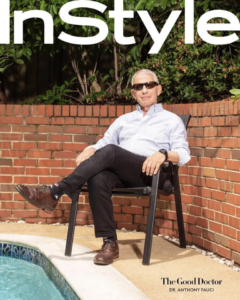
 Virtual meetings are new to most of us. Recent experiences showed NMAC that training in advance on the conference platform is vital to a good conference experience. USCHA will use multiple training tools including online manuals, webinars, and real people to provide technical support. The next two USCHA webinars will happen on:
Virtual meetings are new to most of us. Recent experiences showed NMAC that training in advance on the conference platform is vital to a good conference experience. USCHA will use multiple training tools including online manuals, webinars, and real people to provide technical support. The next two USCHA webinars will happen on: Staff is putting together “advance” workshops to serve as models for presenters. These early sessions will be online to collect feedback on the learning formats and to give presenters an example of USCHA’s expectations. The goal is to create a “good learning experience” for communities working on the frontlines of the epidemic and to educate and train them on the latest HIV prevention, care, and wrap around services in a COVID-19 world where Black Trans Lives Matter.
Staff is putting together “advance” workshops to serve as models for presenters. These early sessions will be online to collect feedback on the learning formats and to give presenters an example of USCHA’s expectations. The goal is to create a “good learning experience” for communities working on the frontlines of the epidemic and to educate and train them on the latest HIV prevention, care, and wrap around services in a COVID-19 world where Black Trans Lives Matter.
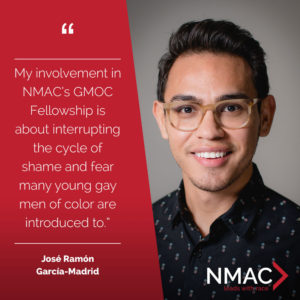
 Imagine if you will being a gay black man living with HIV in the ’80s. The oppressing societal stigmas are dire. Like a carpenter sanding 100-year-old floors, Congressman Lewis removed decades of stain from our souls. For as long as he served in Congress, no civil rights bills were passed without his support.
Imagine if you will being a gay black man living with HIV in the ’80s. The oppressing societal stigmas are dire. Like a carpenter sanding 100-year-old floors, Congressman Lewis removed decades of stain from our souls. For as long as he served in Congress, no civil rights bills were passed without his support.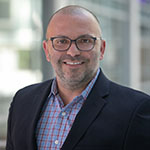
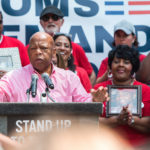
 Information about COVID-19 is rapidly changing. Our next webinar is an update on the new virus and the work that is being done in response. Dr. Stephaun E. Wallace* from Fred Hutchinson Cancer Research Center will lead the discussion. The webinar will provide an update on the COVID-19 vaccine trials and what that means to communities. NMAC is working with the
Information about COVID-19 is rapidly changing. Our next webinar is an update on the new virus and the work that is being done in response. Dr. Stephaun E. Wallace* from Fred Hutchinson Cancer Research Center will lead the discussion. The webinar will provide an update on the COVID-19 vaccine trials and what that means to communities. NMAC is working with the  The COVID-19 Prevention Network (COVPN) was established by merging four existing NIAID-funded clinical trials networks: the HIV Vaccine Trials Network (HVTN), based in Seattle; the HIV Prevention Trials Network (HPTN), based in Durham, N.C.; the Infectious Diseases Clinical Research Consortium (IDCRC), based in Atlanta; and the AIDS Clinical Trials Group, based in Los Angeles, along with other collaborators. It is important to point out how the HIV research infrastructure is supporting the search for a COVID-19 vaccine.
The COVID-19 Prevention Network (COVPN) was established by merging four existing NIAID-funded clinical trials networks: the HIV Vaccine Trials Network (HVTN), based in Seattle; the HIV Prevention Trials Network (HPTN), based in Durham, N.C.; the Infectious Diseases Clinical Research Consortium (IDCRC), based in Atlanta; and the AIDS Clinical Trials Group, based in Los Angeles, along with other collaborators. It is important to point out how the HIV research infrastructure is supporting the search for a COVID-19 vaccine. Treatment education, whether it’s about HIV or COVID-19, is core to our work. Both viruses are infectious diseases that disproportionately impact People of Color. Solutions to ending either epidemic depend upon effective treatments and/or a vaccine. As we have learned in HIV, having tools that work is only the first step. You have to be able to convince people to take the drugs or get the vaccine. That is a complex challenge. Our unequal medical infrastructure combined with a mistrust of the government can create real barriers to ending either epidemic. Black Lives Matter is about addressing these inequities in our society. The color of your skin should not impact your access to medical care and it should not determine your belief in government but, for too many, it does.
Treatment education, whether it’s about HIV or COVID-19, is core to our work. Both viruses are infectious diseases that disproportionately impact People of Color. Solutions to ending either epidemic depend upon effective treatments and/or a vaccine. As we have learned in HIV, having tools that work is only the first step. You have to be able to convince people to take the drugs or get the vaccine. That is a complex challenge. Our unequal medical infrastructure combined with a mistrust of the government can create real barriers to ending either epidemic. Black Lives Matter is about addressing these inequities in our society. The color of your skin should not impact your access to medical care and it should not determine your belief in government but, for too many, it does.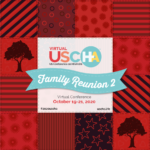
 A virtual HIV jobs fair is our response to the need to be socially distant while looking for employment. Specific times will be set aside during the 2020 conference for participants to go the Virtual Exhibit Hall to meet with organizations with job openings. NMAC is giving free exhibit booths to the 57 jurisdictions that are targeted in this federal effort. Since these health departments will receive the lion’s share of the new funding, they or other organizations in their jurisdictions will have the most jobs to fill.
A virtual HIV jobs fair is our response to the need to be socially distant while looking for employment. Specific times will be set aside during the 2020 conference for participants to go the Virtual Exhibit Hall to meet with organizations with job openings. NMAC is giving free exhibit booths to the 57 jurisdictions that are targeted in this federal effort. Since these health departments will receive the lion’s share of the new funding, they or other organizations in their jurisdictions will have the most jobs to fill. Full time professional employment for the communities hardest hit by HIV equals racial and social justice for communities disproportionately impacted by racism, transphobia, homophobia, and sexism. We have the ability to transform the discussion of racial justice in America by just doing our jobs and hiring people from the communities hardest hit by HIV.
Full time professional employment for the communities hardest hit by HIV equals racial and social justice for communities disproportionately impacted by racism, transphobia, homophobia, and sexism. We have the ability to transform the discussion of racial justice in America by just doing our jobs and hiring people from the communities hardest hit by HIV. To support people looking for jobs and to help organizations looking to hire, USCHA needs
To support people looking for jobs and to help organizations looking to hire, USCHA needs